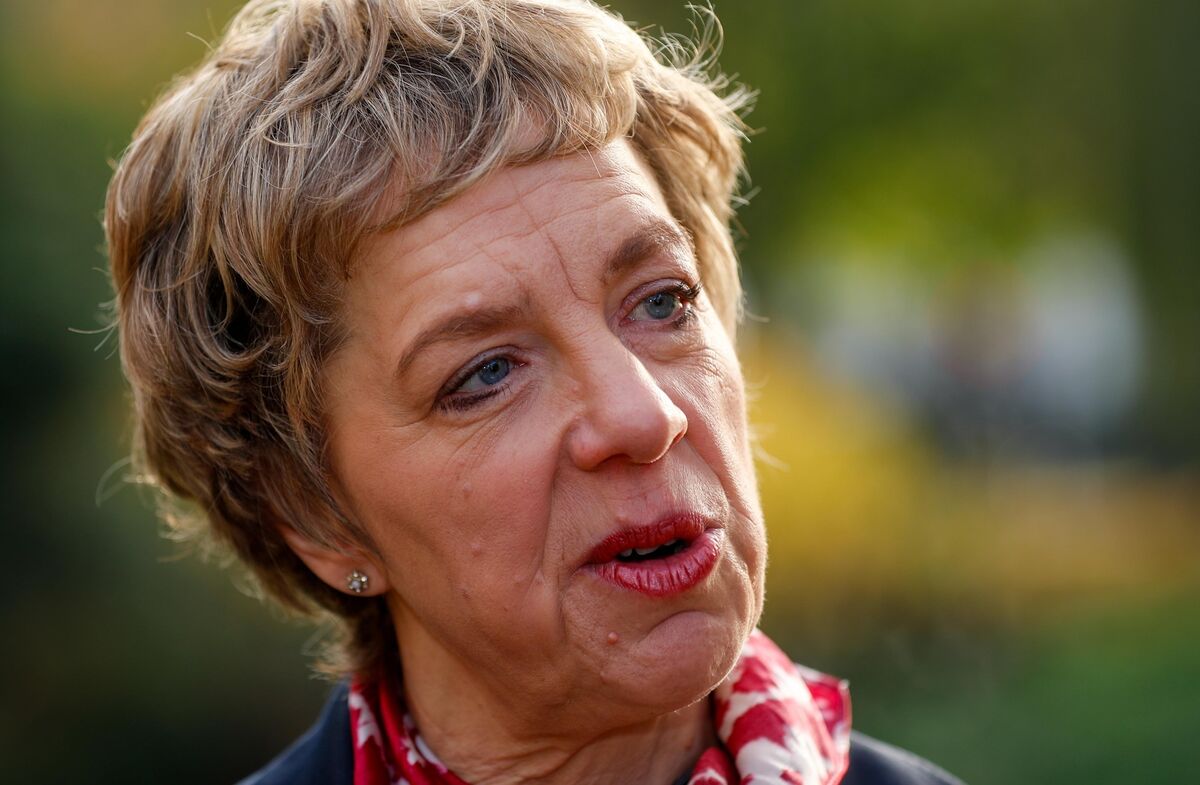Election 2024: Labour hopes to score open goal by putting football ...
They are still celebrating in Drogheda.
From Laurence's Gate to the end of West Street, the claret and blue bunting remains up in celebration of Drogheda United's unlikely FAI Cup victory at the weekend. The club's flags hang in the shops along the street, from butchers to hairdressers to wool suppliers.

Football in the town is in focus for the right reasons, but a recent application for a €20m grant to build a new stadium was not included in a recent funding scheme, and the Labour Party is not impressed.
Political football is a cliche so well-worn the leather panels have come off and the stitching is exposed. It is not a term a self-respecting political writer would use wantonly.
But in Drogheda on Thursday, there was a football. A literal football, procured from a shop in the centre of Drogheda. And there were politicians — Labour's leader Ivana Bacik and its outgoing TD for Louth Ged Nash. It was political football, albeit with Mr Nash not match fit for a kickaround, having slipped on a pumpkin (really) at the same spot two weeks ago and damaging ligaments in his foot, necessitating a walking boot.
The Labour Party has long pinned itself to the sport, driven largely because many of its TDs are genuinely interested in it — Ms Bacik is an FAI-qualified coach, Mr Nash is a lifelong supporter of his local side, Drogheda United.
Labour Party leader Ivana Bacik: On Thursday, the party launched its 'football manifesto', which aims to create a viable 'football industry' in Ireland, to fund academies and to support the League of Ireland by funding critical infrastructure like stadia.Former TD and current MEP Aodhán Ó Riordáin regularly posts about the League of Ireland and ran a football walking tour around Dublin for some time.

On Thursday, the party launched its "football manifesto", which aims to create a viable "football industry" in Ireland, to fund academies and to support the League of Ireland by funding critical infrastructure like stadia.
Practically, the party suggests increasing the betting levy by a percentage point and ringfencing that €30m to be spent on the league. Given the pervasiveness of gambling in sport, it seems only fair that sport benefits, but Labour's making football a cause celebre is a strange one at times, even if there is a logic behind it.
The party last year put down a Dáil private members' motion, which largely asked parties to support what they unveiled on Thursday in Louth and has led the charge to be the party of not even sport, but football. Why? Football is hugely watched in Ireland, but the League of Ireland remains a minority pursuit among fans of the sport, even with 2023 attendances massively up on 2019.
The reality is that Labour needs unique selling points. In a crowded part of the field — or pitch — the party itself acknowledges its first stop post-election will be to form a bloc with centre-left parties like the Greens and Social Democrats in a bid to strengthen its hand in government formation talks.
In that regard, the party needs to break through from the pack. With the parties not a million miles apart in the eyes of the public when it comes to issues like health and housing, latching on to niche issues like football has its merit. The only question is whether it's the open goal the party might think.
This election will be an important one for Labour. Having switched leader from Alan Kelly to Ms Bacik mid-Dáil term, there are questions about what a bad election might mean. But following a solid showing in the local elections and added an MEP for the first time in a decade, Labour will be hopeful of coming back with up to 10 seats. But, likewise, the party is aware a bad day could see it below the seven it left this Dáil with.
Even after the celebrations this week, Drogheda United face a hugely important game on Saturday when they face Bray Wanderers. At stake, Premier League survival. Much like Labour, ecstasy and agony could be intertwined.









































